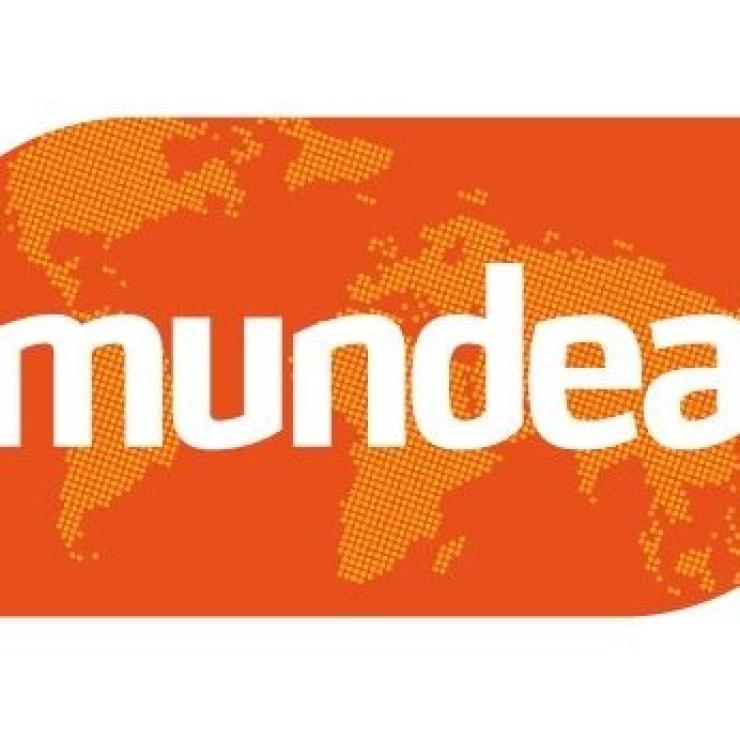More food reaches landfills and incinerators than any other single material in municipal solid waste. Food waste contributes 20% of all materials in landfills; in restaurants, it is estimated that a half-pound of food waste is created for every meal served. One recent study indicates that “the U.S. restaurant sector generates 11 million tons of food waste annually (7 million tons from full-service restaurants and 4 million tons from limited-service restaurants), the full cost of which is more than $25 billion” – most of which enters landfills. In a 2014 study, Food Waste Reduction Alliance “found that 84.3% of unused food in American restaurants ends up being disposed of, while 14.3% is recycled, and only 1.4% is donated.” This statistic is staggering, considering there are 37.2 million people living in food insecure households who could benefit from these discarded foods.
One Baltimore-based company attempting to combat this staggering statistic is Mundea. We took some time to talk with founder Mark Hollak about why he started a food recovery and composting company, what have been the company's biggest successes and barriers, and how Maryland can move forward with composting.

Founded in 2018, Mundea’s mission is "to help combat climate change by offsetting the world’s current CO2 production. The first step is to reduce CO2 and methane production by waste diversion programs, such as composting. The second step is to use the compost to plant trees to revitalize land." Building healthy soils by producing and applying compost can help revitalize lands lost to desertification and restore soils lost to erosion, as well as improve groundwater levels, air quality, and agricultural production. Mundea got started with composting to contribute healthy, nutritious soils to planting trees on degraded land, combining it with "an existing water saving technology that increases the survival rate of a 1-year-old tree on degraded land from <10% to >90%." Mark says, "Our plan is to use the compost together with this technology to revitalize degraded land at a global scale."
Before moving globally, though, Mundea has gotten started locally, by working with Pitango Bakery in the historic Fells Point neighborhood of Baltimore to find ways to reduce their waste stream and even save money. Mark says that at Pitango, "we first set up waste diversion programs such as composting, recycling, and food donations to the Maryland Food Bank. We also switched trash companies to lower cost and improve service frequency to daily pick-up, including Sundays." This process is common among the many businesses they serve: first having the businesses switch waste management providers to lower costs and optimize service levels, and then by working with businesses and their employees to set up a streamlined, tailored system to separate recyclables, compostables, and residual waste. By taking this approach to restaurant food-waste, Mundea is diverting waste away from landfills into composting facilities and donations, alleviating the pressures on the climate and reducing the carbon footprints of local businesses.
Mark describes Mundea’s greatest success is the business partners and local connections that they have made during their year in operation that "each take care of a piece of the puzzle:" including but not limited to "local haulers that each specialize in one of the waste streams (compost, recycling or trash); the Maryland Food Bank; local farms that accept compost; Baltimore City’s Office of Sustainability; Department of Public Works; and, last but not least, businesses that have been willing to save money and lower their carbon footprint." The business owners they work with are usually eager to partner - Mark says the biggest challenge is just getting in front of their busy schedules to make the case!
But even with his current success, time is not on Mark's side. Recently, NASA studies have shown that the world’s temperature has risen 1.4˚F. Locally, the adverse effects of climate change can be seen with the increased rainfall causing flooding, overloaded sewer systems, scoured stream banks, and other problems in the Baltimore region. For Mundea, "this means that we have a tremendous task ahead of us in expanding further in Baltimore, in the U.S. and globally. Mundea plans to offer this model to all cities worldwide, where it is not mandated by the local government, so businesses have the option to lower their carbon footprint." Mark wants to prove that composting and sustainable waste removal are possible with just business partnerships and can be replicated in cities worldwide where governments do not help sustainable initiatives.
Want to find out more about Mundea? Check out www.mundea.com.
Want to bring more composting initiatives to Maryland? Check out our zero waste campaigns and get involved!